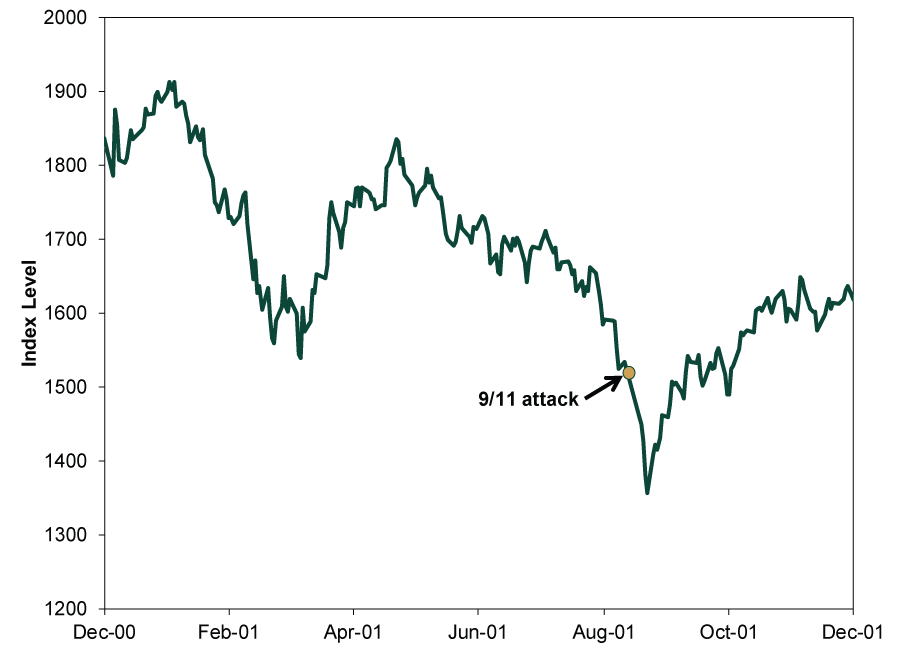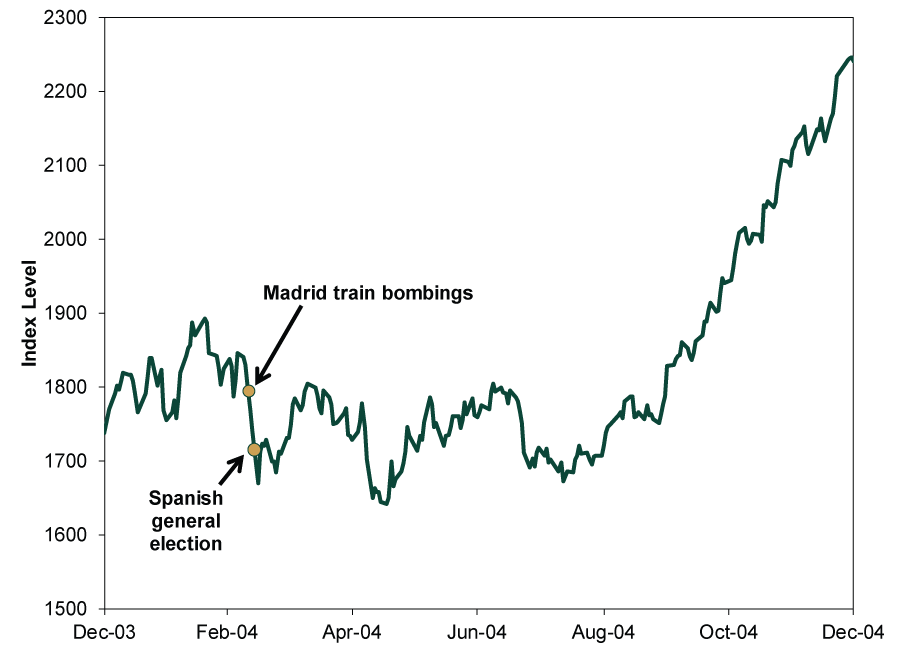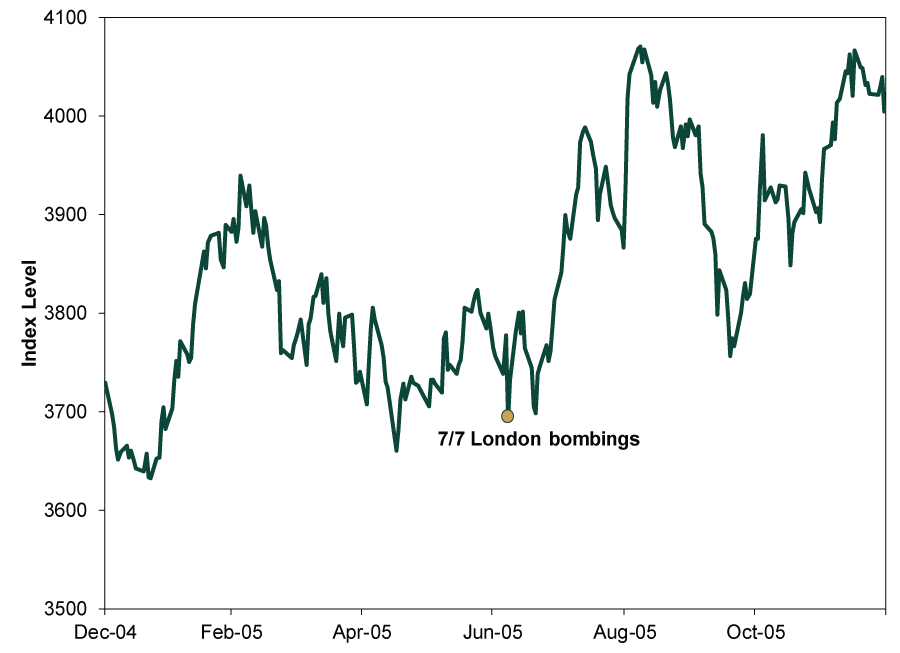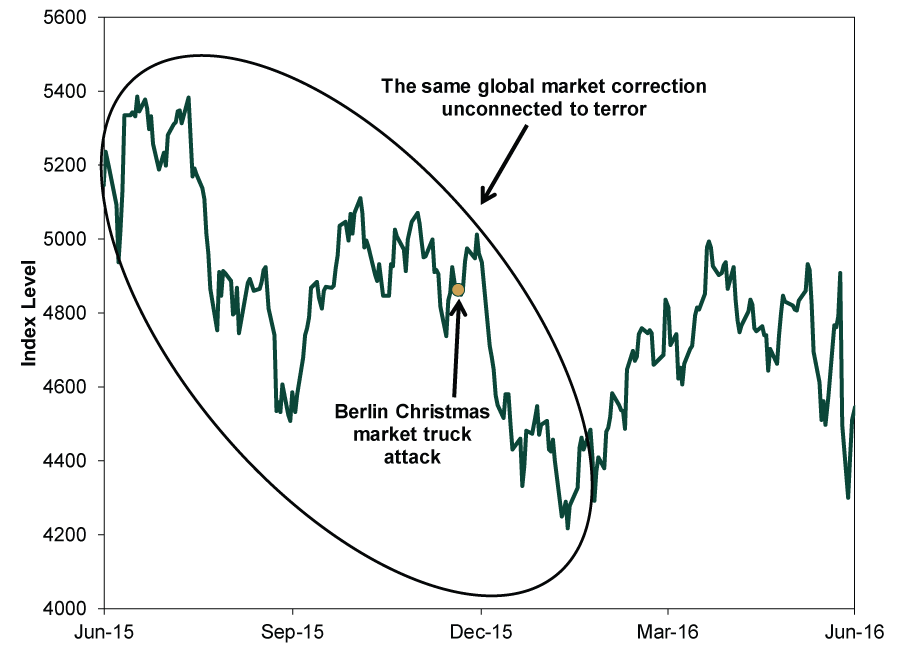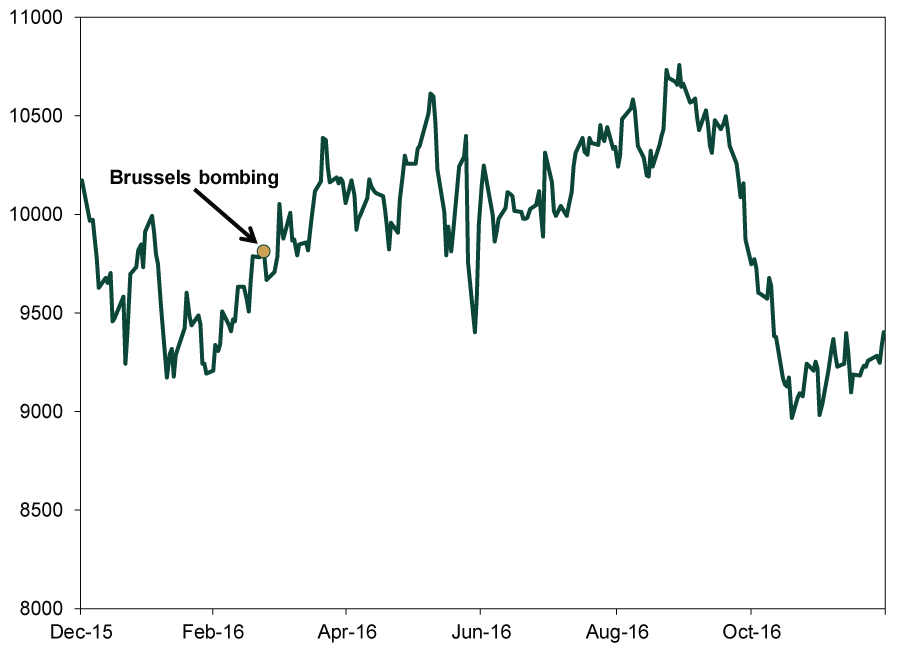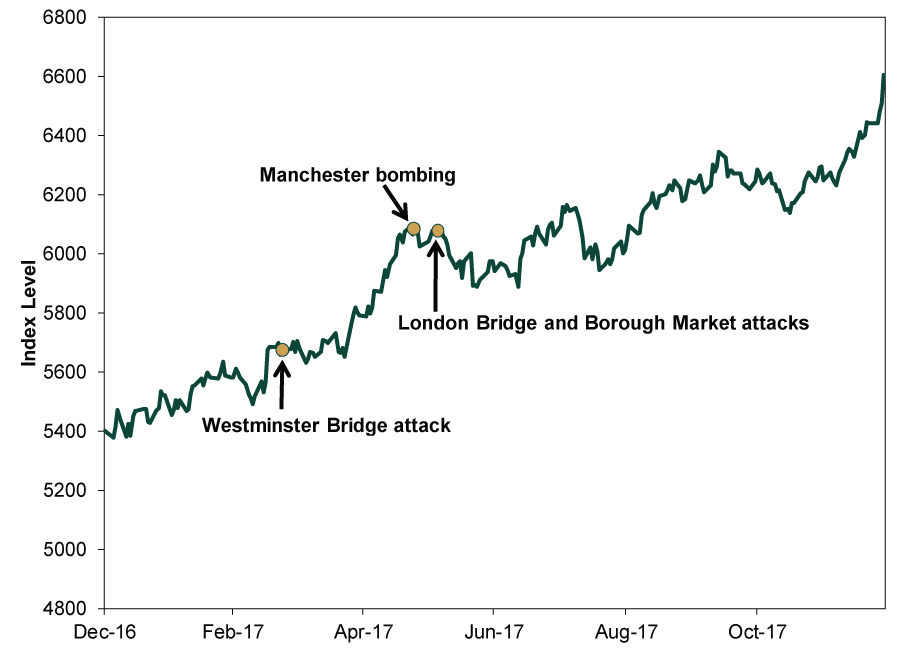Personal Wealth Management / Market Analysis
17 Years Ago Today …
On 9/11’s anniversary, we remember the tragedy and celebrate the country’s resilience.
Beams from the steel façade on floors 96-99 of the North Tower—at the point of impact—loom over the building’s footprint at the 9/11 Memorial in Manhattan. Photo by Elisabeth Dellinger.
Today marks 17 years since terrorists struck America on the deadly day that would come to be known as 9/11, killing thousands of souls and shaking us all to the core. Yet most anniversary retrospectives throughout financial media today don’t look back at the World Trade Center attacks. Rather, headlines are preoccupied with another pending date: The 10-year anniversary of Lehman Brothers’ bankruptcy this Saturday. Perhaps it is because of people’s fascination with round numbers, or perhaps it is another sign of society’s (and markets’) ability to recover and move on from even the most terrible tragedies. You can also see this in The Wall Street Journal’s article on the rebuilt World Trade Center and its occupancy rates. We will get to Lehman later this week, but for now, let us pause to remember the lives lost, the families and friends left behind, and the heroes from all walks of life—and celebrate the resilience of not just America, but all the nations where terrorists struck before and since that day.
It is a testament to free societies’ indomitable spirit that no terrorist attack has ever caused a recession or bear market. 9/11 occurred during the bear market that accompanied the Tech Bubble’s implosion, which ran from March 2000 to October 2002. The associated recession, which began in March 2001, ended two months after the attacks. When markets reopened after the attack, the reaction was swift and sharp—but it didn’t last, and returns from 9/11 through year-end were positive. Spain’s economy grew soundly after March 2004’s train bombings in Madrid, as did the UK economy in the wake of the 7/7/2005 London attack. 2015’s Charlie Hebdo and Paris attacks and 2016’s Nice attack didn’t derail France’s expansion. Nor did 2016’s attacks in Belgium and Germany dent domestic economic activity—or last year’s attacks in the UK. In all of these instances—and many others—free people refused to surrender their way of life. They kept going to work, enjoying mealtimes, traveling, shopping, seeking new experiences and doing all of the everyday things that make economies grow.
As a result, these incidents have another thing in common: limited stock market impact. Exhibits 1-7, some of which we have shown before, show local stock markets surrounding all of the aforementioned attacks. Some, like 9/11, had a visible impact. Others, like the Madrid bombings, occurred alongside other events that temporarily stirred uncertainty, like elections. But none caused a new, lasting downturn, because none of the attacks brought a large, lasting impact on corporate profits. Not only did terrorism sadly lose its surprise power as it became more and more common, but markets gained enough experience to quickly price in the relatively localized economic consequences.
This lesson’s applications spread far beyond terrorist attacks. They apply to Japan in the wake of last week’s Hokkaido earthquake and deadly landslides. They applied to Houston after Hurricane Harvey last year and Hawaii after Hurricane Lane last month. They are worth keeping in mind as Hurricane Florence bears down on the Carolinas. Disasters, whether manmade or otherwise, can inflict unspeakable damage on property and individual lives. But as communities rally and life goes on, markets carry on, plotting our resilience on a chart one day at a time.
Exhibit 1: US Stocks and 9/11
Source: FactSet, as of 9/11/2018. S&P 500 Total Return Index, 12/31/2000 – 12/31/2001.
Exhibit 2: Spanish Stocks and the Madrid Train Bombings
Source: FactSet, as of 9/11/2018. MSCI Spain Index with net dividends in USD, 12/31/2003 – 12/31/2004.
Exhibit 3: UK Stocks and the 7/7 Bombings
Source: FactSet, as of 9/11/2018. MSCI UK Index with net dividends in USD, 12/31/2004 – 12/30/2005.
Exhibit 4: French Stocks and Recent Attacks
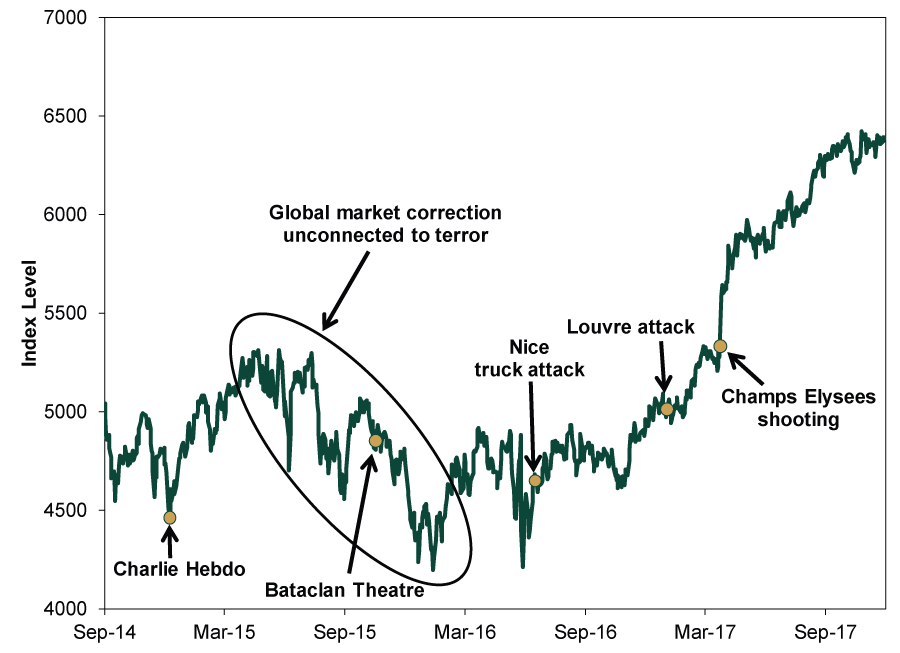
Source: FactSet, as of 9/11/2018. MSCI France Index with net dividends in USD, 9/30/2014 – 12/29/2017.
Exhibit 5: German Stocks and the Berlin Truck Attack
Source: FactSet, as of 9/11/2018. MSCI Germany Index with net dividends in USD, 6/30/2015 – 6/30/2016.
Exhibit 6: Belgian Stocks and the Brussels Bombing
Source: FactSet, as of 9/11/2018. MSCI Belgium Index with net dividends in USD, 12/31/2015 – 12/30/2016.
Exhibit 7: UK Stocks and the 2017 Attacks
Source: FactSet, as of 9/11/2018. MSCI UK Index with net dividends in USD, 12/30/2016 – 12/29/2017.
If you would like to contact the editors responsible for this article, please message MarketMinder directly.
*The content contained in this article represents only the opinions and viewpoints of the Fisher Investments editorial staff.
Get a weekly roundup of our market insights
Sign up for our weekly e-mail newsletter.

You Imagine Your Future. We Help You Get There.
Are you ready to start your journey to a better financial future?

Where Might the Market Go Next?
Confidently tackle the market’s ups and downs with independent research and analysis that tells you where we think stocks are headed—and why.


